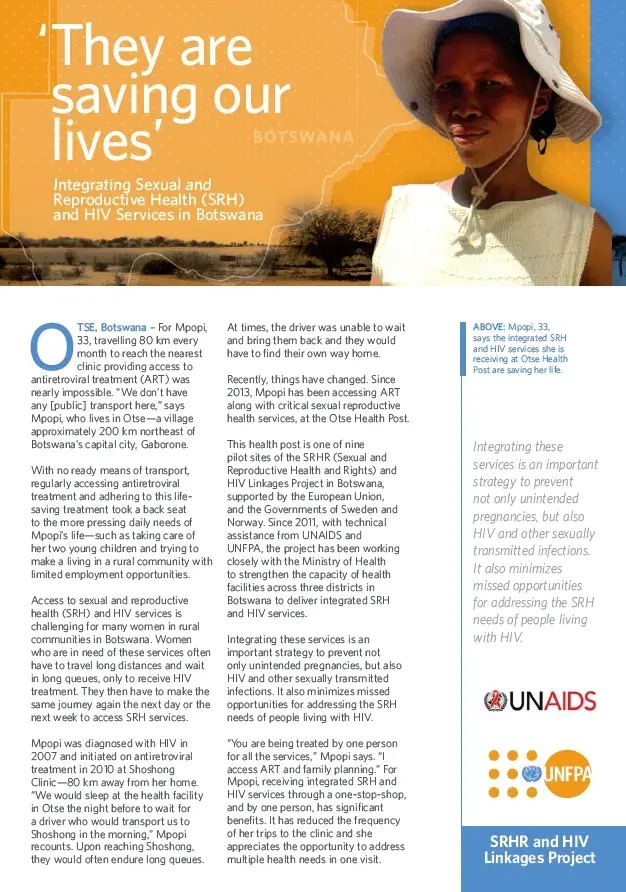OTSE, Botswana – For Mpopi, 33, travelling 80 km every month to reach the nearest clinic providing access to antiretroviral treatment (ART) was nearly impossible. “We don’t have any [public] transport here,” says Mpopi, who lives in Otse—a village approximately 200 km northeast of Botswana’s capital city, Gaborone.
Recently, things have changed. Since 2013, Mpopi has been accessing ART along with critical sexual reproductive health services, at the Otse Health Post. This health post is one of nine pilot sites of the SRHR (Sexual and Reproductive Health and Rights) and HIV Linkages Project in Botswana, supported by the European Union, and the Governments of Sweden and Norway. Since 2011, with technical assistance from UNAIDS and UNFPA, the project has been working closely with the Ministry of Health to strengthen the capacity of health facilities across three districts in Botswana to deliver integrated SRH and HIV services.
Integrating these services is an important strategy to prevent not only unintended pregnancies, but also HIV and other sexually transmitted infections. It also minimizes missed opportunities for addressing the SRH needs of people living with HIV.
Read Mpopi's story.



